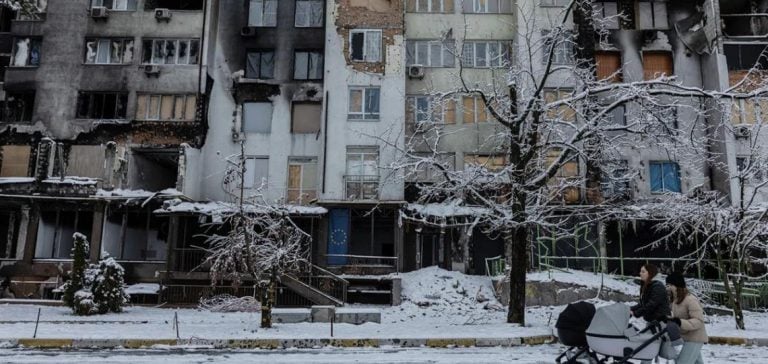Ukraine and Moldova are at a critical juncture in their energy security as winter approaches. The massive destruction of Ukraine’s energy infrastructure, caused by ongoing hostilities, raises major concerns about these countries’ ability to cope with severe weather conditions.
The International Energy Agency (IEA) is sounding the alarm, calling for an urgent mobilization of Western nations to support these two countries in their struggle to maintain energy supplies.
IEA Director General Fatih Birol points out that Ukraine’s energy system has already been put to the test over the last two winters, but that the current situation represents an unprecedented challenge.
At a press briefing in Brussels, he says: “This winter will be, by far, its most severe test to date.” European Commission President Ursula von der Leyen, who will be in Kiev to meet President Volodymyr Zelensky, insists that more aid is needed to ensure that Ukrainians can stay warm and that electricity continues to flow.
Financial assistance and energy infrastructure
The European Union has announced a further 160 million euros in support for humanitarian aid and energy infrastructure, bringing the total to 2 billion euros since the start of the invasion.
This funding is aimed at boosting energy production capacity, in particular through the installation of solar panels.
However, the IEA warns that the planned cessation of Russian gas transit to Ukraine at the end of 2024 could also have serious repercussions for Moldova, which relies heavily on Russian gas supplies.
Ukraine has lost more than two-thirds of its power generation capacity since the start of the conflict, making the situation even more precarious.
The IEA proposes several solutions to repair damaged infrastructure, including the rapid delivery of equipment and spare parts.
The agency also calls for an increase in electricity and gas import capacity from the European Union, stressing the importance of enhanced cooperation between European countries.
Demand forecasts and repair requirements
IEA forecasts indicate that electricity demand in Ukraine could reach 18.5 gigawatts (GW) during peak periods this winter, while the country could be short of 6 GW of generating capacity.
This shortfall is equivalent to Denmark’s total consumption at peak demand.
In addition, damage to thermal and electrical power plants, as well as to district heating infrastructures, is estimated at $2.4 billion.
Moldova, although less exposed to bombing, faces similar challenges.
It depends on Russia for two-thirds of its electricity supply, making it vulnerable to the uncertainty associated with the cessation of gas transit.
The IEA notes that strengthening interconnections with European countries is crucial to Moldova’s energy security.
Construction of new high-voltage lines between Moldova and Romania is underway, but completion is not imminent.
Short-term solutions and outlook
To cope with the urgency of the situation, the IEA recommends that Ukraine rely on diesel generators and stocks of firewood for this winter.
These temporary solutions are essential to guarantee a minimum of comfort and energy security for the population.
However, they are no substitute for a long-term strategy to modernize and diversify energy sources.
The IEA also stresses the importance of reinforcing the physical and IT security of critical infrastructures, in particular by installing anti-drone protection.
Before the invasion, Ukraine relied mainly on nuclear energy for its power generation, but the current situation calls for a reassessment of energy priorities and a diversification of supply sources.
The challenges facing Ukraine and Moldova this winter illustrate the crucial importance of international cooperation in the field of energy security.
The efforts of the European Union and other international players will be crucial in helping these countries overcome this crisis.
The current situation is a reminder that energy resilience is a strategic issue that requires sustained attention and concerted action at all levels.






















